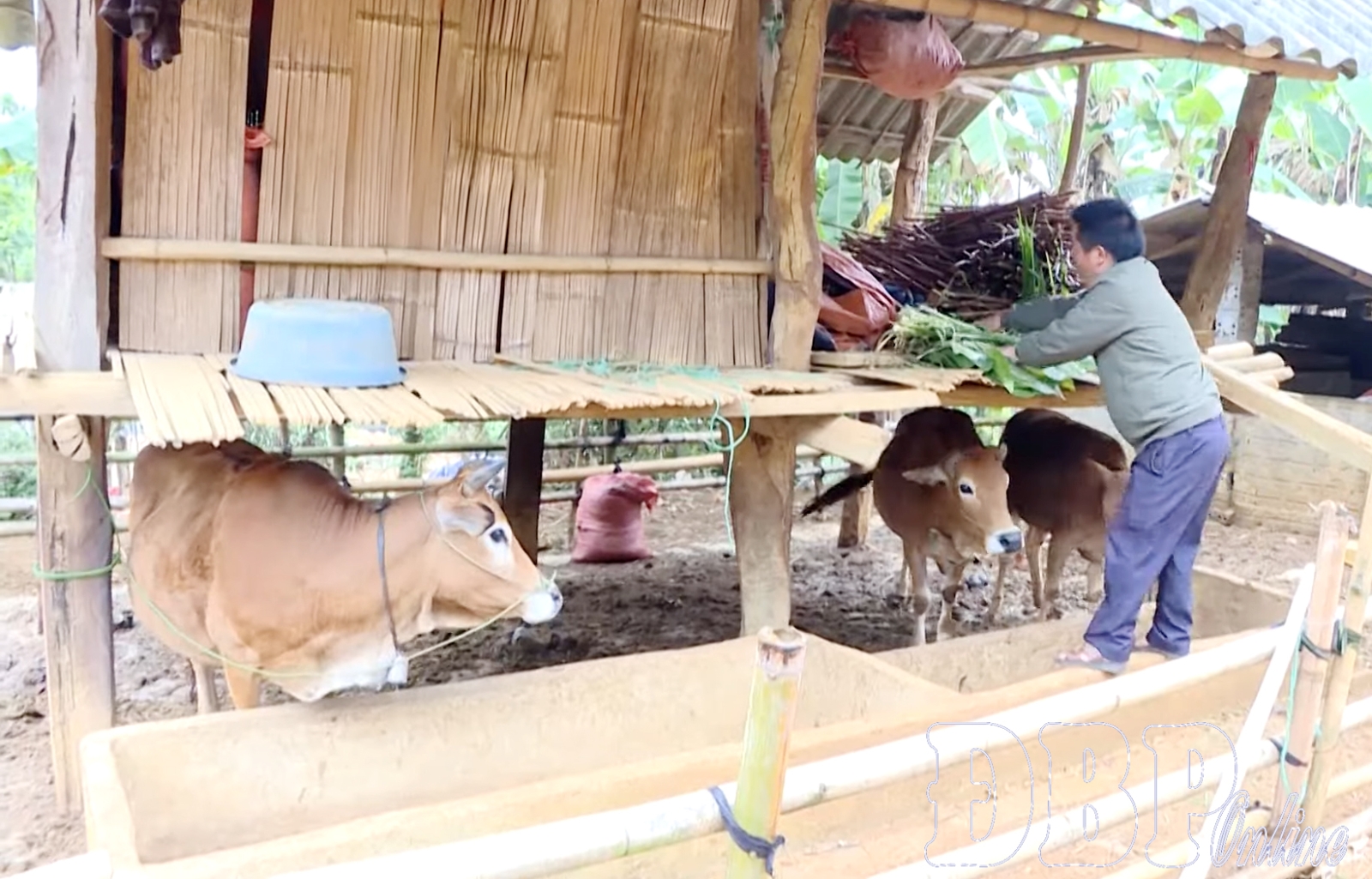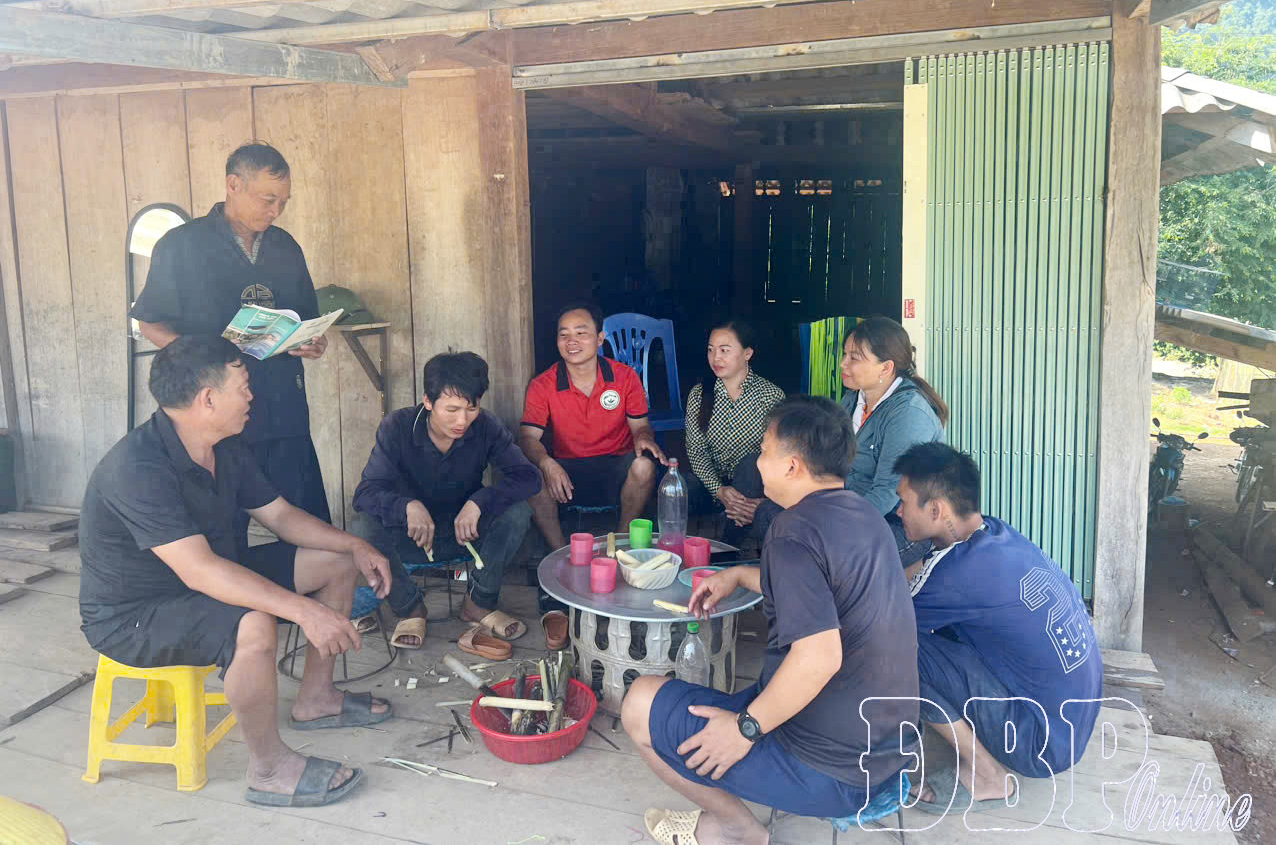To address this issue, local authorities, functional sectors, and mass organizations have stepped up efforts to promote awareness and support households in relocating their livestock pens away from living spaces. The goal is to protect the environment, encourage civilized, cultural living habits, and advance new-style rural development.
In recent years, the Vietnam Fatherland Front Committee of Tủa Chùa district, Điện Biên province has collaborated with communes and townships to carry out communication campaigns, offer support, and assist families in moving their livestock enclosures farther from homes. Mường Báng commune is among the localities that have successfully implemented this initiative.

In 2018, the district’s Vietnam Fatherland Front Committee worked with the commune to launch a pilot model in Phai Tung village, focusing on relocating livestock pens from beneath stilt houses to locations away from residential areas. The model leveraged the exemplary role of village elders, reputable individuals, Party members, and local officials to encourage community participation.
Điêu Chính Nhơi, head of Phai Tung village, shared that in the early days, the initiative met resistance due to limited awareness, lack of land, funding, and materials. “To address this, the Vietnam Fatherland Front Committee of the district sets annual relocation targets and encouraged households to sign relocation commitments. Today, all households in the village have changed their mindset and voluntarily moved livestock pens away from their homes, contributing to new rural development,” he added.
Núa Ngam commune, once a particularly disadvantaged area of Điện Biên district, predominantly inhabited by ethnic minorities, also faced similar challenges. Most families used to raise livestock directly beneath their homes or in pens adjacent to them, creating unhygienic living conditions and posing health risks.

To phase out this outdated practice, local authorities launched intensive awareness campaigns, highlighting the benefits of relocating livestock enclosures. Villages formed outreach teams to assist households in moving their pens, while new village regulations on environmental sanitation were introduced, with households signing commitments to comply.
Lò Văn Miêu, a resident of Na Sang 1 village, was among the first to act. “We raise 10 buffaloes - our family’s main asset, so keeping them nearby made it easier to care for and protect them. But we saw the environmental problems it caused. After learning about the commune’s directive and village regulations, we decided to relocate the pens. Now, many families in the village have done the same,” he explained.
Authorities have also integrated this initiative into criteria for evaluating “cultural families,” assigning Party members to take the lead and motivate their relatives and communities to follow suit. As a result, there has been a significant shift in both mindset and behavior. To date, 70 out of 115 communes in the province have met environmental criteria for new-style rural areas. Environmental pollution in residential areas has been reduced, and outdated livestock-keeping habits have been replaced with cleaner, more civilized practices.

Despite these positive developments, challenges remain. Many households live close together, leaving little room for livestock structures. Others worry about theft or lack the financial means to build new pens at a distance. Surveys show that 95% of livestock farming in the province remains small-scale and scattered. Free-ranging or near-home enclosures are still common, often failing to meet safety and sanitation standards.
Recognizing the importance of eliminating this backward practice, local governments have issued specific plans and annual targets for relocation. The Fatherland Front and mass organizations continue to raise awareness, promoting the principle that Party members, officials, and civil servants should lead by example to drive change within their communities.
While raising livestock remains essential for many rural families, ensuring proper facilities and hygiene standards is equally important to safeguard public health and living conditions. Changing mindsets and modifying long-held habits is a vital step. By relocating livestock enclosures, households not only protect the environment and their own families but also contribute to the broader well-being of their communities.




.jpg)
.jpg)
.jpg)
.jpg)
.jpg)
.jpg)

.jpg)
.jpg)


.jpg)
.jpg)
.jpg)

.jpg)

You have 500/500 characters left
Please enter 5 or more characters!!!